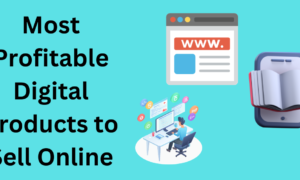In today’s digital era, entrepreneurship has evolved dramatically, leading to the emergence of micro-entrepreneurship. This phenomenon highlights the trend of individuals establishing small-scale businesses, often leveraging digital platforms. This article explores the realm of solo entrepreneurship, explicitly emphasizing the growing practice of selling online businesses. As traditional business models shift towards digital platforms, more individuals are venturing into solo entrepreneurship, drawn by the flexibility and accessibility it offers.
Understanding the dynamics of selling online businesses is crucial for aspiring entrepreneurs looking to capitalize on this trend. By delving into the intricacies of this evolving landscape, individuals can gain valuable insights into navigating the world of solo entrepreneurship and maximizing opportunities in the digital marketplace.
The Emergence of Solo Entrepreneurship
In recent years, solo entrepreneurship, also known as micro-entrepreneurship, has surged in popularity. This trend is driven by the expansion of the gig economy and the widespread availability of online platforms. Unlike traditional entrepreneurship, which typically involves creating large businesses, solo entrepreneurs operate on a smaller scale. They rely on their skills and expertise to establish themselves in niche markets.
This shift towards solo entrepreneurship reflects professionals’ desire for independence and flexibility. By leveraging digital tools and platforms, solo entrepreneurs can reach customers globally without significant upfront investment. This evolution in entrepreneurship highlights individuals’ adaptability in leveraging modern technologies to create innovative and scalable business models tailored to their unique strengths and interests.
Understanding Online Business Models
Online businesses encompass various models, such as e-commerce stores, service-based ventures, and content creation platforms. These models allow solo entrepreneurs to leverage their skills and cater to specific consumer demands. E-commerce stores enable entrepreneurs to sell products directly to customers, while service-based enterprises offer specialized services or expertise. Content creation platforms provide a platform for creators to share valuable content, often monetized through various channels such as advertising or subscriptions.
Each model empowers solo entrepreneurs to capitalize on their strengths and passions, whether it’s curating products, providing tailored services, or creating engaging content. By understanding the nuances of each business model, entrepreneurs can identify the best fit for their skills and interests, positioning themselves for success in the competitive online landscape.
Building Your Online Business
Embarking on the journey of building an online business entails several crucial steps. Initially, entrepreneurs must pinpoint a niche market with untapped potential that aligns with their expertise and passions. Establishing a distinct brand identity is pivotal, as it distinguishes the business from competitors and resonates with the target audience. With a defined niche and compelling brand identity, solo entrepreneurs devise strategic marketing initiatives to connect with their desired customer base.
This involves leveraging various channels such as social media, content marketing, and search engine optimization to enhance visibility and attract potential buyers. By implementing effective marketing tactics tailored to their niche, entrepreneurs can effectively engage with their audience, build brand loyalty, and drive sales, laying a solid foundation for long-term success in the competitive online landscape.
Challenges Faced by Solo Entrepreneurs
Operating a solo venture presents enticing opportunities but is not without its challenges. The delicate balance of managing time, resources, and personal well-being is chief among these. With no team to delegate tasks to, solo entrepreneurs must juggle multiple responsibilities, often leading to time constraints and increased pressure to meet deadlines. Additionally, resource limitations can hinder growth and scalability, requiring creative solutions and prudent financial management.
Moreover, maintaining a healthy work-life balance can prove challenging, as the boundary between professional and personal life becomes blurred. Despite these hurdles, solo entrepreneurs can overcome challenges by implementing effective time management strategies, leveraging available resources judiciously, and prioritizing self-care to sustain long-term success while navigating the complexities of solo entrepreneurship.
The Concept of Selling Your Online Business
As solo entrepreneurs grow and expand their reach, selling their ventures often crosses their minds. This decision can stem from various motives, including a desire to explore new opportunities or realize a profitable investment return. However, selling an online business entails thorough deliberation and meticulous preparation. Factors such as determining the business’s valuation, organizing financial records, and optimizing operations are crucial.
Additionally, understanding the legal and logistical aspects of a business sale is essential for a smooth transition. By approaching the selling process with careful consideration and attention to detail, solo entrepreneurs can maximize the value of their business and facilitate a successful transaction, enabling them to pursue new ventures or capitalize on their achievements.
Platforms for Selling Online Businesses
A plethora of platforms exist to aid in the sale of online businesses, catering to diverse needs and preferences. These platforms encompass a spectrum, from well-known online marketplaces to specialized brokerage firms focusing on digital acquisitions. Each platform boasts unique features and benefits, providing sellers with various options to align with their goals and requirements. Online marketplaces offer broad exposure to potential buyers and a user-friendly interface, while brokerage firms provide personalized assistance and expertise in navigating complex transactions.
The choice of platform depends on factors such as the nature of the business, the desired level of support, and the timeline for the sale. By carefully evaluating the offerings of different platforms, sellers can make an informed decision that maximizes their chances of a successful sale and ensures a seamless transition for both parties involved.
Preparing Your Business for Sale
Before selling their business, solo entrepreneurs must thoroughly prepare to ensure a smooth transaction. This involves meticulously organizing their financial records and ensuring operational efficiency. Streamlining processes, updating documentation, and resolving outstanding liabilities are essential. By presenting potential buyers with well-documented financial records and optimized operations, entrepreneurs can enhance the perceived value of their business and instill confidence in prospective buyers.
Addressing any existing issues or liabilities preemptively can mitigate potential concerns and streamline the selling process. Ultimately, investing time and effort into preparing the business for sale increases the likelihood of a successful transaction and reflects positively on the seller’s professionalism and commitment to transparency.
Navigating the Selling Process
Navigating the process of selling an online business can be intricate, encompassing negotiations with potential buyers and adherence to legal requirements governing business transactions. It involves various stages, including valuation, due diligence, and drafting agreements, each requiring careful attention to detail. Seeking guidance from seasoned professionals, such as business brokers or legal advisors, can greatly facilitate the process and increase the likelihood of a favorable outcome.
These experts offer invaluable insights and expertise, helping sellers navigate complex negotiations, mitigate risks, and ensure compliance with regulatory frameworks. By leveraging their experience and knowledge, sellers can streamline the selling process, minimize potential pitfalls, and ultimately achieve a successful transaction that meets their objectives.
Case Studies of Successful Solo Entrepreneurs
Studying real-life case studies of solo entrepreneurs who have effectively sold their online businesses offers invaluable lessons and insights for aspiring sellers. These case studies provide tangible examples of the strategies and tactics that have led to successful exits, offering practical guidance and inspiration. By analyzing the experiences of others, entrepreneurs can gain a deeper understanding of the key factors that contribute to a successful sale, such as meticulous preparation, strategic planning, and practical negotiation skills.
Additionally, case studies highlight common challenges and pitfalls to avoid, helping entrepreneurs navigate the selling process with greater confidence and clarity. Ultimately, drawing from real-world examples empowers sellers to make informed decisions, adapt their approach based on proven practices, and maximize the value of their businesses when the time comes for them to pursue an exit strategy.
Future Trends in Micro-Entrepreneurship
The future of micro-entrepreneurship holds excellent promise, buoyed by relentless technological advancements and the perpetual expansion of the digital realm. With each innovation, new avenues for entrepreneurial ventures emerge, offering unprecedented opportunities for solo entrepreneurs to thrive. As the digital landscape evolves, aspiring entrepreneurs find themselves in an advantageous position to capitalize on emerging trends and forge their paths to success.
Whether it’s harnessing the power of artificial intelligence, embracing blockchain technology, or tapping into the burgeoning gig economy, the possibilities for micro-entrepreneurs are limitless. By remaining adaptable, innovative, and forward-thinking, solo entrepreneurs can position themselves at the forefront of this ever-changing landscape, paving the way for a future marked by ingenuity, resilience, and boundless entrepreneurial spirit.
Conclusion
In summary, the ascent of micro-entrepreneurship signifies a fundamental transformation in the business landscape, granting individuals the autonomy to pursue their interests and attain financial independence on their terms. This shift fosters a culture of empowerment, enabling solo entrepreneurs to chart their course toward success. By grasping the nuances of selling an online business, entrepreneurs can set themselves up for sustained prosperity in an ever-evolving marketplace.
Through strategic planning, meticulous preparation, and a commitment to continuous learning, solo entrepreneurs can navigate the complexities of business ownership with confidence and resilience. Ultimately, the rise of micro-entrepreneurship heralds a new era of opportunity and empowerment, where individuals can realize their entrepreneurial ambitions and shape their destinies in a dynamic and competitive business environment.
FAQs
- How long does building a profitable online business as a solo entrepreneur take?
Building a profitable online business as a solo entrepreneur can vary greatly depending on the chosen niche, marketing strategies, and individual dedication. While some entrepreneurs may see success relatively quickly, others may need months or years to establish a sustainable income stream. - What are some common mistakes to avoid when selling an online business?
Common mistakes to avoid when selling an online business include underestimating its value, neglecting to prepare adequate documentation, and failing to conduct thorough due diligence on potential buyers. Additionally, overlooking legal considerations or attempting to sell during a market downturn can hinder the selling process. - Can anyone become a successful solo entrepreneur, or does it require specific skills?
While anyone can theoretically become a successful solo entrepreneur with dedication and perseverance, specific skills can significantly enhance one’s chances of success. These include strategic thinking, adaptability, effective communication, and a continuous willingness to learn and evolve. - Are there any tax implications to consider when selling an online business?
Yes, there are tax implications to consider when selling an online business, including capital gains tax on any profits realized from the sale. It’s advisable to consult with a tax professional or financial advisor to understand the specific tax implications based on your circumstances and jurisdiction. - What role does social media play in the success of a solo entrepreneur’s online business?
Social media plays a crucial role in the success of a solo entrepreneur’s online business by providing a platform for building brand awareness, engaging with customers, and driving traffic to their website or online store. Leveraging social media effectively can help expand your reach, foster customer loyalty, and grow your business.



























